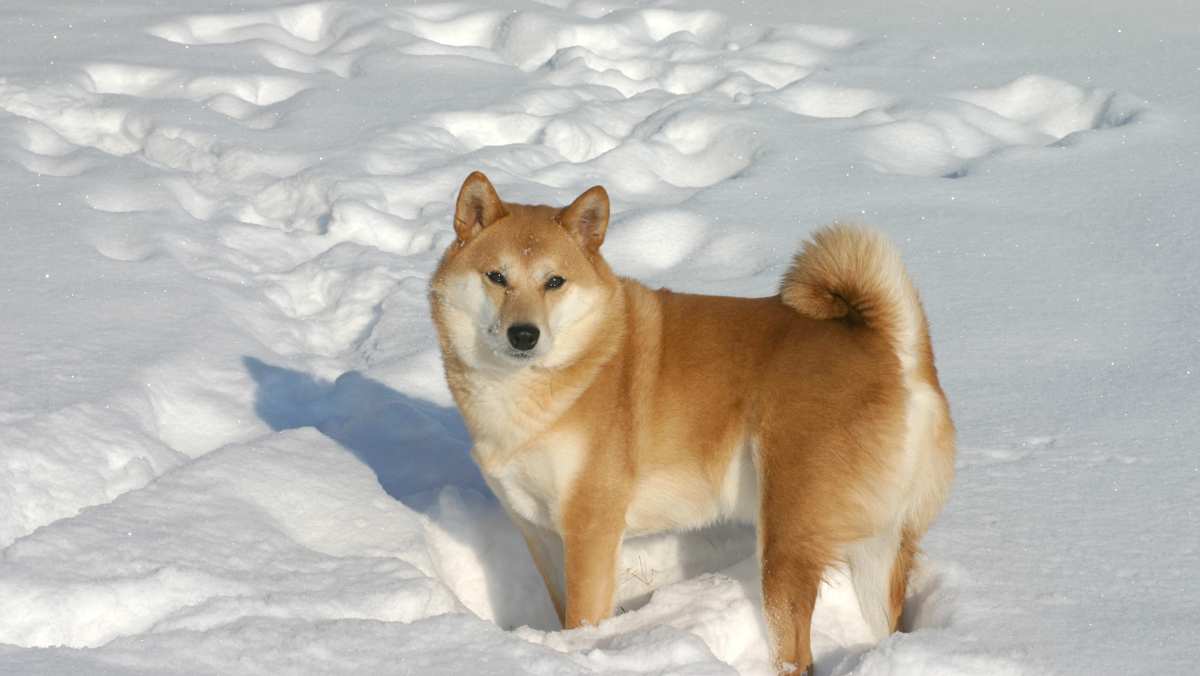Shiba Inu Breed Details
Below are the characteristics and traits of the Shiba Inu breed.

The shiba inu is the smallest of Japan's native dog breeds. The breed was originally bred to flush birds and small game for hunters, which may explain why Shiba Inu in Japanese directly translates to Brushwood Dog. The breed is often described as resembling a fox or a stuffed toy with its behavior frequently compared to a cat.
The breed is well known for their bold fearless attitude, high intelligence, acrobatic like agility, and occasionally stubborn behavior. Putting all of these traits into a small dog yields an amusing dog breed that owners will never get bored of.
Below are the characteristics and traits of the Shiba Inu breed.
The shiba inu is a small dog breed. Males weigh no more than 23 pounds and stand 16 inches tall from ground to shoulder. This size makes the breed easy to travel with and ideal companions for apartments and smaller homes yet large enough to avoid being preyed upon by larger animals that occasionally see toy dogs as prey.
Shiba inus are an alert, energetic, and intelligent dog breed. They are free thinkers and will problem solve situations which makes it easy for them to find mischief and expert escape artists. They have a strong prey instinct and will not hesitate to chase small birds, squirrels, and mice against their owner's will. Shiba inus do well with other pets and do best with other dogs they were raised with. The breed is a good family dog and does well with children, however puppies may be a bit too feisty for toddlers and younger kids.
The shiba inu's thick double coat sheds year round, but twice a year the breed will blow their coat and will shed heavily. To keep the coat maintained it will need to be brushed daily and bath every three months. While the breed does have a good amount of energy, their small size makes it easy for them to meet their exercise needs. A daily walk and a few games of fetch will satisfy the dogs energy requirements.
Exactly where do Shiba Inus come from? Shiba Inu origin begins in Japan, where the breed is the smallest of several Japanese dogs of the Spitz type (along with the Akita and the Kishu, among others). Dogs of this kind were represented in clay figurines from the Jomon period of prehistoric Japan, as early as 12,000 BC; the dogs were believed to have assisted the hunter-gatherer tribes of the period in flushing small game like birds and rabbits.
Another big factor in Shiba Inu history concerns the breed's name. "Shiba" loosely translates to "brushwood," which describes one type of vegetation in which the dogs hunted; the shiba bush also has a reddish-brown color, which may be a nod to the dog's coat coloring.
Whatever the case, not much other info exists about Shiba Inu evolution until the mid-20th century. The Shiba Inu breed nearly became extinct in Japan due to the ravages of World War II; a few survived, however, and the Japanese Kennel Club adopted the Shiba Inu's breed standard sometime in the 1950s.
In America, meanwhile, a few soldiers brought these dogs with them when they returned home from the war. The breed remained relatively obscure in the U.S. until the 1970s, and the first litter was born in America in 1979. The Shiba Inu was admitted to the American Kennel Club's Miscellaneous group in 1993, the to its Non-Sporting group in 1997.
As of 2022, the Shiba Inu ranks 44th on the AKC's list of 202 registered breeds.
Below are health issues and concerns most common in Shiba Inus
Below are potential health concerns associated with Shiba Inus.